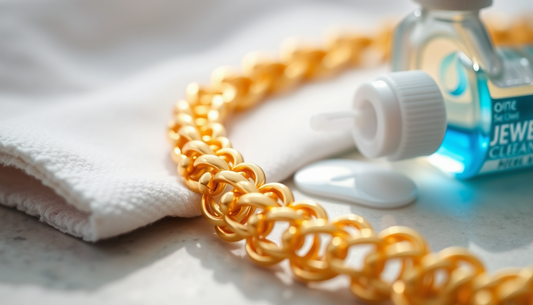
Why does white gold stick to a magnet?
Share
In the jewelry realm, one of the most common questions that arises is, “why does white gold stick to magnets?” This phenomenon can cause confusion among white gold jewelry owners, so let’s break it down.
Understanding white gold
White gold is not a pure metal; it is an alloy that combines gold with other metals, such as palladium, nickel or rhodium. These additions give it its characteristic white hue and greater resistance. However, the presence of certain metals can cause white gold to stick to a magnet , especially if it contains nickel, which is magnetic.
Why does this happen?
The main reason why white gold sticks to a magnet is the composition of the alloy. If your jewelry contains a significant amount of nickel or iron, it is likely to be attracted to a magnet. Not all types of white gold react the same way; some higher-quality alloys are designed to be less magnetic.
How to prevent white gold from sticking to a magnet
If you want to prevent your white gold jewelry from sticking to the magnet, consider the following recommendations:
-
Choose high quality alloys
When purchasing white gold, make sure the jewelry is made from a high-quality alloy that contains fewer magnetic metals. This will reduce the likelihood of the white gold sticking to the magnet . -
Consult a jeweler
If you already own white gold jewelry and are experiencing this problem, consider taking it to a professional jeweler. They can evaluate the alloy and offer solutions, such as additional plating. -
Regular maintenance
Keep your jewelry clean and well maintained. Not only does this help preserve its shine, but it can also minimize contact with metals that could be magnetic.
Conclusion
In short, white gold sticks to magnets due to the presence of magnetic metals in its alloy, especially nickel. To avoid this problem, choose high-quality jewelry and take good care of your pieces. If you have any further questions about your white gold jewelry, please feel free to contact us.



